
Bread made of ancient yeast from the Bronze Age
 14. 04. 2020
14. 04. 2020

"Would you eat bread made from ancient Bronze Age yeast?" One scientist must. Nowadays, there is virtually no eating style, dietary fad or culinary trend that would go unnoticed by avid consumers of diet-related contributions. Sometimes these blogs and videos spread evenly. But baking bread? That sounds a bit dull to us compared to all this. It probably won't be food that should spread virally, will it? Wondering what could be even more boring?
It turned out quite a lot of things. Especially when the person baking the bread is in fact a scientist experimenting with historical things, rather than pointing out their basic meaning. Seamus Blackley is a video designer and scientist who recently acquired ancient yeast and decided to try baking a loaf of bread with it. He recorded the whole experiment in a way worthy of the 21st century - on his Twitter account. With the help of two experts, Blackley obtained samples of 4-year-old yeast and figured out how to help them multiply and become "baking capable" in his own kitchen.
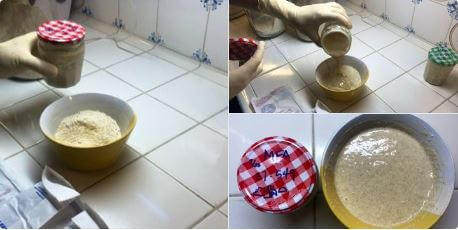
In his quixotic mission, he was assisted by the Egyptologist Dr. Serena Love and microbiologist Richard Boman. With their help, Blackley obtained yeast from ancient pottery at the Peabody Museum of Archeology and Ethnology at Harvard University in Cambridge, Massachusetts. Blackley recently said on his Twitter: "With their help (Love and Bomana), I went to the Harvard Peabody Museum to try to remove 4-year-old yeast from ancient Egyptian pottery. I baked one of them today. This "crazy" dough leavened and grew beautifully. "
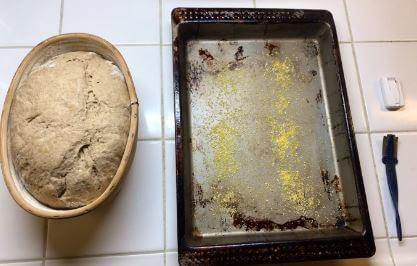
This crazy ancient dough leavened and grew beautifully. Here it is in the basket, just before it is tipped onto the plate. The ancient Egyptians didn't bake this way - you'll see - but I still need to learn to work with it, so I'll be conventional for now.
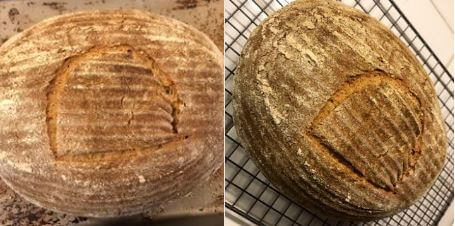
And here is the result. On the crust is a hieroglyph representing the sound of "T" (Gardiner X1), a loaf of bread. The smell is amazing and fresh. It's sweeter and richer than the sourdough we're used to. It is a big difference. After cooling we taste!
Of course, yeast is used to bake all sourdough bread; it is essentially an organism that is found in nature and even in the human body. Many people keep a sourdough which is used repeatedly at home. But for 4 years? This is something new, both for bakers and foodblogers.
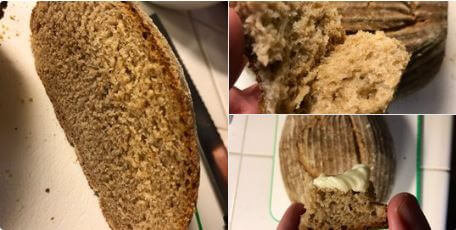
The crust is light and fluffy, unique to a 100% ancient grain loaf. The smell and taste are incredible. It's very emotional. Bread is really different and easy to recognize, even if you are not a pastry expert. It is incredibly exciting and I am absolutely amazed that it succeeded.
Naturally, Blackley could not use the pores in the state in which they were obtained; first he had to sterilize them - who knew what tricky germs such old organisms could contain? He then added a few "regular" yeast and grain, water and unfiltered olive oil. Soon he had what could be called an ancient dough for a modern dish. He marked the hieroglyphic symbol for bread as the icing on the Blackley cake on top of the loaf before placing it in the oven.
The result of the experiment was fantastic, he said. "The smell of this sourdough is different from everything I've ever experienced," he wrote on Twitter. "The smell is wonderful and fresh." It is much sweeter and richer than the sourdough we are used to. It is a big difference. "
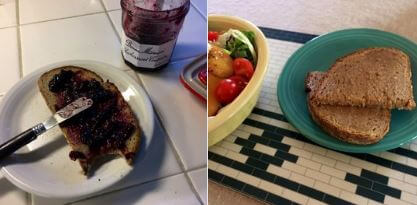
My wife embarked on Egyptian bread. For a moment, I believe she is Sachmet.
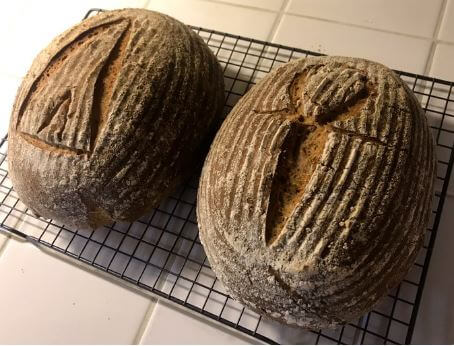
Today I still tried different combinations of grain and microorganisms. This will be the last test we will show before returning to our bio lab and using the right ancient Egyptian baking techniques.
The big question, of course, is how the bread tasted? On Twitter, Blackley provoked, "The samples go for a thorough assessment of Boman, but I was naughty and I kept one!" “The crust is light and fluffy, unique to a 100% ancient grain loaf. The smell and taste are incredible. I'm moved about it, "he admitted on Twitter.
For those who dislike science, the obvious question to Blackley is, "Why bother with such a thing at all?" But in his world and in the world of historians, the differences between the past and the present and the ability to bridge those differences and transfer the past to the present are the cause of unfailing joy. Aren't we in a position to deny Blackley this "bakery exotic" that is very fun for him? And even more so his science.





 1
1